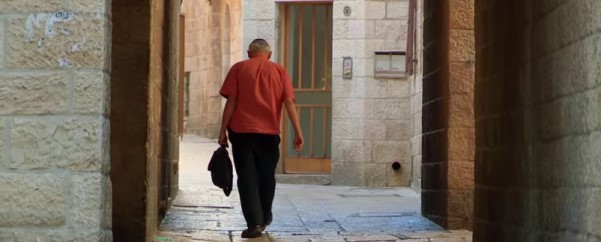Often, people from other states, for various reasons, want to settle in the blessed land of the Jewish state, but do not know how to fulfill their dream.
- who and where can apply for a residence permit in Israel;
- what variants of this status exist in the promised land;
- what documents will be needed.
Residence permits in Israel
So , legislation countries provided the following residence permits in Israel: up to five years - a transitional residence permit; up to three years - a temporary residence permit; without time limit - permanent residence permit. Both Jews (as repatriates a priori cannot be denied) and non-Jews (they may well be given permission to live in Israel, but are not required to) can apply for this status.
Repatriation
In the first case, there are no obstacles for either the applicant or the members of his family, if he proves that, indeed, he is a Jew. This means, according to the decision taken by the Israeli Knesset, that he was born to a Jewish mother and professes Judaism. In order to prove Jewish origin, a person applying for repatriation must provide his birth certificate, as well as documents of his parents, grandparents, and, if possible, representatives of the previous generation - great-grandparents. However, any evidence and evidence of Jewish origin will be useful - family photos, documents - testimonies from the synagogue, etc.
After all, everything will be carefully checked:
- motives of the future repatriate's desire to obtain a residence permit in Israel;
- the authenticity of his documents;
- cleanliness before the law in the country of his residence.
The presence of problems in any of the three points will easily lead to the refusal of repatriation. You need to apply either to the Israeli consulate in the country of residence, by submitting a petition for repatriation, or, having arrived in Israel, with a similar petition to the country's Ministry of Internal Affairs.
If the outcome of the case is positive, the repatriate is initially granted a five-year residence permit, and then it is extended indefinitely. With the exception of great-grandchildren - Jews who have not reached the age of majority, whose parents, in the status of repatriates, settle in Israel. They are issued immediately permanent view for residence. But if such a minor does not live in the country for 7 years or more, he loses the right to permanent residence in Israel.
Non-Jewish emigration
It is very difficult for a non-Jew to obtain a residence permit in the Jewish state. However, there are two options:

In these cases, a request for legalization should be submitted exclusively to the regional department of the Ministry of Internal Affairs in Israel. If any of these options suits you, then good luck!
- Repatriation.
- The conclusion of a marriage alliance with a Jew / Jewish woman.
- Reunification of the child with the parent.
- Obtaining refugee status.
Repatriation
Repatriation (from lat. repatriate - return to one's homeland) is regulated by the Law of Return. It secures the rights of Jews, as well as members of his family up to the third generation, for permanent residence. A Jew has the right to automatic citizenship of the State of Israel.
After long disputes and litigation caused by the influx of hundreds of thousands of Jews and non-Jews who wished to accept the citizenship of the State of Israel, the Knesset decided to define a Jew as a person born from a Jewish woman who did not voluntarily change religion, or as a person professing Judaism. Russians thinking about how to get a residence permit should take into account that nationality records made in the documents of another state are not accepted as evidence. In addition to personal documents (passports, photographs of all family members, work books, diplomas of education, certificates of no criminal record, with translations into Hebrew and English language certified by a notary), birth certificates up to the third generation are additionally requested. It is in the interests of a person applying for the status of a repatriate to collect all possible evidence, without allowing any corrections or forgeries. All references are carefully checked.
After the documents have been checked, an interview is scheduled, at which the purpose and motives of the move will be clarified, as well as other questions will be asked. The interview plays an important role, so it is advisable to prepare for it in advance so as not to cause unreasonable doubts about the sincerity of the answers.
After passing all the checks and an interview, you can apply for a residence permit for up to 5 years. This is a temporary residence permit, giving repatriates a period of adaptation, with the subsequent right to obtain a permanent residence permit (permanent residence). Israeli minor children who arrived in the country of repatriates are issued an Israeli residence permit indefinitely. A repatriate who has received a temporary residence permit should be aware that absence from the country for more than 7 years may serve as a basis for depriving him of his status.
Applications for obtaining the status of a repatriate are accepted both in consular departments Embassy of Israel in Russia, and directly to the Ministry of Internal Affairs of Israel, when visiting the country. 
Marriage to a Jew
Getting a view of permanent residence in Israel, it is possible for Russians to marry a Jew. The procedure for obtaining a residence permit in this case is as follows:
- Obtaining a work visa for a period of 1 year.
- Obtaining a residence permit for a period of 1 year with subsequent prolongation for 5 years, and in cases where the marriage is not officially registered, up to 7 years.
- Obtaining a residence permit indefinitely.
If the marriage is declared invalid or fictitious, the non-resident spouse is expelled from the country. In order to exclude fictitious marriage, spouses are monitored and frequent unannounced inspections are carried out, especially in the first 2 years after marriage. Spouses in unregistered relationships are subject to stricter control than spouses who are officially married. An unconditional way to avoid unnerving checks is to replenish the family.
In the event of a divorce, the spouse is also required to leave the country, unless he has already gone through all the stages of acquiring a permanent residence permit.
Reunification of a child with a parent
This method of obtaining a permanent residence permit involves two factors:
- the child, an Israeli citizen or a person with a permanent residence permit, must be an only child;
- the male parent must be over the age of 67, and the female parent must be over 65 years of age.
A person who wants to legalize the stay of a parent in Israel must have an impeccable reputation in relation to the Law. If a parent has another child who is not an Israeli citizen, but does not maintain contact with him, does not provide support to the parent, it is possible to legalize the parent's stay in the country through the court if the absence of assistance from this child is proved. It will also be carefully checked whether the child living in Israel really maintains contact with the parent. In case of successful completion of the legalization procedure, a parent from 67 to 70 years old is issued a two-year work visa. The visa period is reduced to 1 year if the parent is over 70 years old. Then a temporary residence permit is issued for a period of 2 years, followed by the granting of a permanent residence permit.
Getting refugee status
The only way to obtain a residence permit in Israel for Russians who do not have family ties in Israel is to acquire refugee status.
According to the definition of the Geneva Convention, a person who is persecuted on racial, religious, political grounds, for belonging to a certain sexual orientation, can be recognized as a refugee. In this case, the person must provide evidence of a threat to life and appeal for the protection of their rights to the authorities of their country, and not receiving it. Based on this, obtaining refugee status seems to be a rather difficult procedure.
After submitting an application to the Department of Refugees, a temporary visa and a temporary work permit are issued, until the completion of the consideration of the request for granting refugee status.
Persons who have a criminal record, have committed crimes abroad or have other problems with the Law will not be able to apply for a residence permit, as they pose a certain threat to society and the state as a whole.
In order to obtain a residence permit, the presence of real estate in Israel does not matter, as well as the financial situation of the applicant.
Attention! Due to recent changes in legislation, the legal information in this article may be out of date!
Our lawyer can advise you free of charge - write a question in the form below.
Over the past decades, immigration to Israel of citizens from the post-Soviet countries has increased significantly. A special surge occurred at the beginning of the 90s of the last century. However, over the past few years, since 2014, there has been a significant increase migratory flow towards the Promised Land. This is due to political instability and the deterioration of living standards in some CIS countries.
The desire of foreigners to move to Israel for a long time, to obtain a residence permit (permit), and then an Israeli passport is quite understandable. Despite sluggish military confrontations and periodic series of terrorist attacks, the country has a stable economy, high level social security and quality medical care. Yes and climatic conditions along with many ancient historical monuments attractive not only for tourists, but also for permanent residents.
However, in comparison with many countries of the world, including most European countries, obtaining a residence permit in Israel is not an easy task. One might even say almost unrealistic for foreigners who do not have Jewish roots. None of the traditional methods, such as buying real estate, studying at an Israeli university, employment, or doing business in Israel, guarantee a residence permit. Next, let's try to figure out what options there are and answer the question of how to get a residence permit in Israel.
How to get a residence permit in Israel

Most affordable way obtaining a residence permit in Israel for Russians, Ukrainians and other foreigners from the CIS countries, is primarily associated with the presence Jewish roots. Especially for these purposes, the country has a law " about the return", according to which the ancestors of the Jews, and necessarily maternal line, as well as spouses, children, grandchildren and even members of their families, have the right to use the repatriation procedure. Must be Jewish or giyur(conversion to Judaism).
The procedure for moving to Israel includes a careful collection of documents confirming Jewish roots, which must be submitted to the Israeli Consulate in your country. The candidate must not pose a threat to Israel's national security and, in principle, must not commit serious crimes. Employees of the diplomatic department will conduct a preliminary interview, where they will ask about the motivation for immigrating to Israel and ask clarifying questions.
If the grounds for repatriation ( Aliyah) a special Israeli organization will suffice dry will provide the necessary assistance in moving, including the purchase of a plane ticket, and even provide financial assistance for the first time. Usually a repatriate is issued a special temporary visa. type A1, indicating that a person is sent to Israel for permanent residence. After arrival, it is possible to obtain not only a residence permit, but also Israeli citizenship, and in a fairly short time.
Important. The repatriation procedure can be completed while already on Israeli territory, as you know, citizens of Russia and Ukraine do not need a visa to visit Israel for tourism purposes (up to 90 days). To do this, you need to contact the Israeli Ministry of Internal Affairs with a corresponding application..
Obtaining a residence permit in Israel for Russians and Ukrainians who do not have Jewish roots involves the process of family reunification. The following persons can use this method:
- spouses and partners an Israeli citizen or a foreigner permanently residing in Israeli territory;
- single parents Israeli citizen or permanent resident of Israel, aged for a man - over 67 years old and for a woman over 65 years old, provided that they do not have children in another country who can provide the necessary care.
For many developed countries family reunification is almost a matter of course. But not for Israel. Employees of the local Ministry of Internal Affairs carefully consider each application, very often the requirements change or additional conditions are put forward, so the services of local lawyers are often required. Let's consider the main points.
To move to Israel, family members will need to obtain a B1 visa, allowing them to work in Israeli territory. After some time, a temporary residence permit is issued ( visa A5), and then permanent residence ( permanent residence) or citizenship. For each category of persons, there are different terms for granting a residence permit, which can also be changed by decision of the Israeli Ministry of Internal Affairs, but usually the procedure is as follows:
For the spouse of an Israeli citizen - visa B1 issued for six months or a year, after which it becomes possible to issue A5 visa, with the right to annual renewal. After 4 years, you can apply for permanent residence or citizenship.
For the spouse of a permanent resident of Israel - visa B1 issued for 2-2.5 years, then issued visa A5 which has been used for 3 years. At the end of this period, they receive permanent residence or citizenship.
In case of cohabitation with an Israeli citizen - visa B1 issued for 2-3 years, then issued visa A5 and after 4 years there is a chance for permanent residence or citizenship.
In case of cohabitation with a permanent resident of Israel- visa B1 issued for 4 years, then receive A5 visa for 5 years and only after that it is possible to acquire permanent status.
In the case of parents- if age under 70 is issued visa B1 for 2 years, if over 70 years for 1 year. Then valid for 2 years visa A5. After this period, permanent residence is issued.
For initial receipt B1 visas and each subsequent renewal, including a temporary residence permit in Israel, will have to undergo a rather rigorous verification of the authenticity of close relationships, the so-called step procedure. If during the interview the local authorities have suspicions about the fictitious marriage or initially for registration B1 visas evidence will not be enough, family reunification can be forgotten.
Usually to get B1 visas The following information is provided as evidence of the authenticity of the relationship:
- Letters in Hebrew from both persons, with detailed description sincerity of personal relationships and the need for cohabitation. Be sure to date and sign.
- Letters in Hebrew from family members and close friends (about 5 letters) confirming the close relationship of visa applicants. With date, signature and contact details.
- Several joint photos, including with friends and relatives.
- Other evidence in the form of printouts of phone calls, postcards, hotel bills, restaurants, and so on.
- Proof of cohabitation, such as a real estate lease agreement, utility bills with personal details, etc.
In each individual case, the Israeli authorities reserve the right to refuse to issue a residence permit.
Resident card
All persons eligible to apply for permanent residence in Israel can be divided into two categories: those subject to and not subject to the Repatriation Law.
I. Under the Repatriation Law of 1950, every Jew has the right to repatriate to the State of Israel. The rights also extend to the child and grandson of a Jew, to the spouse of a Jew, to the spouse of a child and grandson of a Jew. Exceptions are cases when a Jew voluntarily changed his religion.
On the basis of the Law, a residence permit (the so-called residence permit of category A1) is issued for a period of up to three years.
To obtain a residence permit of this category, you must submit to the Repatriation Department of the Embassy of the State of Israel:
- a 3x4 cm photo of each person applying, including newborns;
- all available documents confirming kinship: your own, parents, brothers and sisters, grandparents, uncles and aunts, great-grandparents (including family photographs);
- documents of close relatives in Israel, including their Israeli identity cards, as well as the following information about them: the exact date of their repatriation to Israel, address and phone numbers;
- a questionnaire filled out directly at the consulate; applications of persons who indicated in the column "religion" any other religion, except for the Jewish (the indication "non-believer" is also allowed) will be rejected.
II. Non-Jews can apply for permanent residence in Israel in the following cases.
1) Through marriage. One of the spouses must have citizenship or the right of permanent residence in Israel. In this case, both spouses go through a stepwise naturalization process.
- Both spouses must appear at the Ministry of Internal Affairs with a request to change their status.
– After the Ministry certifies the authenticity of the documents and the absence of criminal danger from the foreign spouse, he is granted a work visa (B1) for one year, after which it is extended for another year.
- The Ministry of Internal Affairs sends the spouses for an additional check to the Liaison Bureau of the Israeli Foreign Ministry.
– A foreign spouse is issued an A5 visa (temporary identity card) for one year.
- A foreign spouse annually renews his A5 visa at the Ministry of Internal Affairs.
2) Through obtaining a work visa. To obtain it, an employer in Israel sends an application to the Israeli Ministry of Industry, Trade and Labor. The main difficulty in this matter is the following: a potential employee must have special qualifications, unique knowledge, and the employer must prove that he was unable to find a suitable specialist in Israel. foreigner gets work visa B1 for one year with the possibility of further extension.
3) If the applicants are elderly people who do not have a spouse and other children, except those living in Israel. First, elderly parents receive a B1 visa, then a temporary identity card, an A5 visa. After two to three years of residence with this visa, parents can obtain a permanent residence permit.
Parents must submit the following documents to apply:
- valid passport;
- documents confirming relationship;
- certificate of no criminal record;
- in case of having a spouse or other children, but no relationship with them, other documents (for example, court proceedings, certificates from the police about beatings, etc.).
In addition, children are required to prove their ability to provide for their parents financially. In rare cases, brothers and sisters can be called for permanent residence.
4) if the applicants are representatives of religious denominations who are sent to serve in religious institutions, or volunteers arriving for unpaid work in kibbutzim and monasteries; they are issued a special visa upon invitation from these organizations, usually for six months with the right to extend.
5) in exceptional humanitarian cases. A visa can be obtained by refugees from other countries or applicants with a special personal situation, such as those who are seriously ill.
A study visa issued to study at Israeli institutions of higher education does not give the opportunity to apply for permanent residence, since its validity is usually one to two years.
Applications for a residence permit are considered by the Israeli Ministry of the Interior in the usual manner within 30 days, in cases requiring in-depth consideration - up to 90 days. After four years of residence with a residence permit, you can apply for permanent place residence.
permanent residence
A permanent residence permit grants almost the same rights of residence in Israel as citizenship. However, the holder of a permanent residence permit cannot obtain a darkon (Israeli international passport), does not receive the right to elect and be elected to government and self-government bodies, as well as to hold a number of positions.
Since for some categories of migrants it is not allowed to retain the citizenship of their country when obtaining citizenship in Israel, some of them prefer to receive a permanent residence permit rather than becoming Israeli citizens.
The status of a permanent, and not a temporary resident of Israel is immediately granted to minor great-grandchildren of Jews entering Israel with immigrant parents.
If the holder of this status is outside Israel for seven years, the Ministry of Internal Affairs deprives him of the right to permanent residence in the country.
Citizenship
Under Israeli law, citizenship can be obtained on the basis of:
- Law "On repatriation";
- birth;
- birth and residence;
- residence;
- adoptions;
- naturalization;
- citizenship awards.
Of all the above methods, an adult non-Jewish foreigner can become an Israeli citizen only through naturalization or the grant of citizenship.
Naturalization means rooting, the gradual entry into society of full-fledged citizens. A foreigner acquires Israeli citizenship by naturalization if he:
1. is in Israel at the time of obtaining citizenship;
2. has been in Israel for at least three years out of the five years immediately preceding the application (while living in the country on a work visa, as a spouse or single parent, or on special humanitarian cases visas);
3. has the right to permanent residence in Israel; this right is stipulated by the legislation on entry and follows, for example, when living in the country as a family member or when staying in the country as a permanent resident;
4. settled or intended to settle in Israel, that is, he has living conditions, a source of income, owns property, etc.;
5. speaks Hebrew; the legislation stipulates "some knowledge of Hebrew", but does not clearly define what level of proficiency is required; in practice, the level of an ulpan, an educational institution for the intensive study of Hebrew, is sufficient;
6. renounced previous citizenship or provided evidence that he would renounce foreign citizenship upon obtaining Israeli citizenship.
It should be noted that even the observance of all these conditions does not guarantee the award of citizenship, but only allows you to apply for it. naturalization decision foreign citizen taken at the discretion of the Minister of the Interior.
Citizenship by award is acquired by decision of the Minister of the Interior in a number of cases, including:
- granting citizenship to a minor resident of Israel - at the request of his parents;
- granting citizenship to an Israeli resident if he or a member of his family has brought tangible benefits to the state (for example, to establish security in the country or economic well-being - see below in the section "Business emigration").
Foreign citizens who have acquired Israeli citizenship acquire the same rights as persons who have become citizens of this country by virtue of the Law "On Repatriation", with the exception of the rights to benefits and material assistance from the state.
Business immigration
The concept of business immigration, that is, obtaining the right to permanent residence by investing in the country's economy, does not exist in Israel. The only exception is when the applicant plans to engage in an activity of particular interest to Israel. However, such cases are considered individually and are extremely rare.
Buying real estate as a type of investment also does not provide permanent residence rights in the country.




